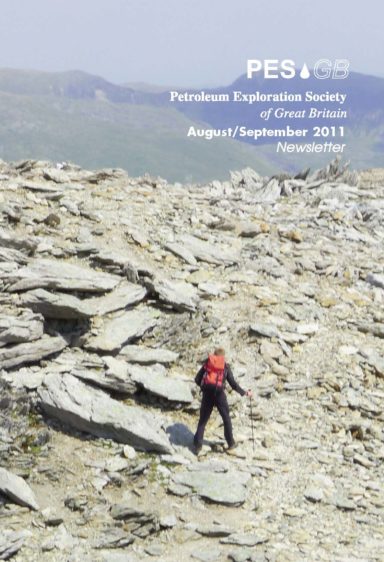PESGB August/September 2011
- July London Lecture Review
- Geophysics Seminar Review
- Helmsdale Field Trip Review
- The North American Arctic
Plus much more inside
President’s Page- Steve Garrett
The West of Shetland province is adopting a central role in petroleum exploration in the UK, in stark contrast to a backdrop of low levels of exploration and appraisal drilling activity in the UK North Sea. To deliver its potential, the province faces a number of challenges. Sub-volcanic exploration risks remain high, as suggested by reports that recent wells in the UK, Faroes and West Greenland margins failed to find significant reservoir. Sub-volcanic structural traps are imaged poorly, and so the geophysical community is responding with the application of latest technology. On a more positive note, in non-volcanic sections gas discoveries and 4D results from producing deep-water reservoirs suggest that there is a good track record of gas indicated by seismic amplitudes.
During appraisal, technical uncertainties are taking time to resolve. Several West of Shetland fields are still in the appraisal phase almost a decade after discovery. This indicates some potential tradeoffs between scale and reservoir complexity (e.g. image, reservoir, trap and seal integrity). The more simple reservoirs may not be large enough to prompt informed and speedy development decisions. Larger fields may have a combination of complexities, such as intravolcanic reservoirs in Rosebank, or fractured reservoirs at Clair where production uncertainties and related risks have been resolved by taking a phased approach to the development. Fast track developments such as Schiehallion and Foinaven have provided reservoir and facilities lessons that all can learn from.
Infrastructure has been slow to arrive. Developments such as Laggan-Tormore have been subject to dramatic swings in fiscal regime ranging from special allowances to the 2011 tax increases.
Environmental challenges are significant moving into more remote, deeper water. The perception of these challenges by the public, government and non-government organisations has become much more acute following events in the Gulf of Mexico last year. To sustain its right to operate, the industry has demonstrated safe drilling operations during recent wells, and oilspill response capability in Exercise Sula in partnership with government agencies.
PESGB has an important role to play in realising the potential of the West of Shetland region by promoting education and exchange in the scientific and technical aspects of exploration and
appraisal, such as at the July 2011 London Lecture. Please join us in taking the next step forward at the West of Shetlands conference on 4-5 October 2011.


